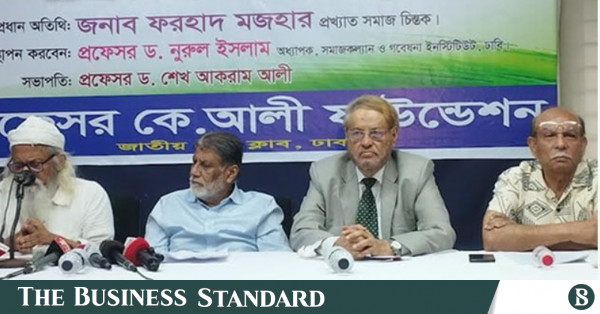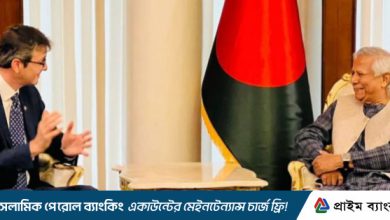Constitution should be reformed to build anti-discrimination state: Farhad Mazhar


He said reforms should be held at every sector of the state
Political analyst Farhad Mazhar speaks at a seminar organised by Professor K Ali Foundation at the auditorium of Jatiya Press Club. Photo: BSS
“>
Political analyst Farhad Mazhar speaks at a seminar organised by Professor K Ali Foundation at the auditorium of Jatiya Press Club. Photo: BSS
The constitution should be reformed first before building an anti-discrimination state, researcher and political analyst Farhad Mazhar today said (14 September).
“Democracy is a special character of a state . . . it is a special form of a state,” he said while addressing a seminar organised by Professor K Ali Foundation at the auditorium of Jatiya Press Club.
Former secretary and NBR chairman Abdul Mazid, former ambassador Major General (retd) Abul Kalam, economist Dr Reza Kibria, Arts Faculty dean of Dhaka University Professor Dr Siddiqur Rahman Khan, Brigadier General (Retd) Salzar Rahman and Farid Uddin, among others, took part in the seminar with Professor Dr Sheikh Akram Ali in the chair.
Mentioning that the constitution of 1972 was framed in the perspective of that time, Farhad Mazhar said the constitution under which the state is currently ruling is made by ousted prime minister Sheikh Hasina.
“So, the constitution should be reformed first before building a state free from discriminations,” he said.
Reforms should be held at every sector of the state, he said, adding that people should be connected to the state system.
“To maintain the country’s democracy, people’s participation and involvement must be ensured in every field. Everyone should be given opportunities to work in their respective fields,” he said.
At the event, speakers said a non-discrimination state should be ensured with the participation of people from all walks of life.
People are the main driving force of a country, they added.
Social Welfare and Research Institute of Dhaka University Professor Dr Nurul Islam read out the keynote paper in the seminar.




